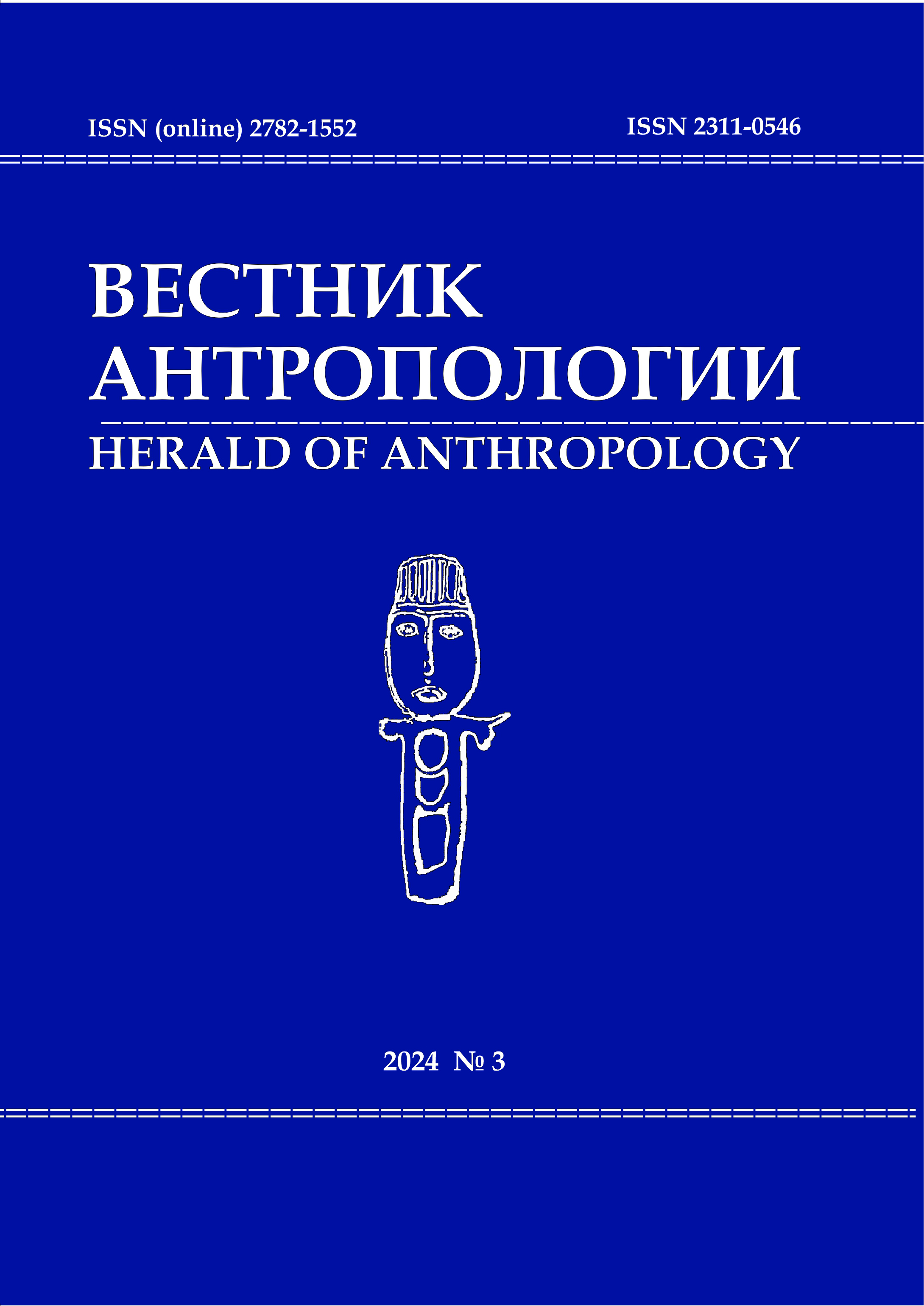Intangible Ethno-cultural Heritage in Diaspora Communities: A Case Study of Russian Koreans
DOI: 10.33876/2311-0546/2024-3/23-37
Keywords:
Russian Koreans, intangible ethno-cultural heritage, diasporaAbstract
The article analyses the perspectives of studying ethno-cultural heritage within the diaspora community using the case of urban communities of Russian Koreans in the Perm region. The study is based on field data collected in 2012–2024 and on recent changes in Russian legislation, regulating the concept of intangible ethno-cultural heritage of the peoples of Russia. It shows that Russian Koreans continue to preserve and reproduce the traditions of their culture in the context of diaspora education. This is most evident in the example of traditional cuisine and life cycle rituals. Rituals that have no equivalent in the local culture are relatively well preserved, such as a ritual called “Toljanchi” (Толь/Тольджанчхи). If the culture of the host community has similar traditions, then the Korean cultural heritage is either completely replaced or modified under the influence of the dominant tradition (such as a wedding, Seollal (Сольлаль) holiday or the 60-th anniversary). Nowadays, Koreans are reviving old traditions and customs with great interest, but this is more about constructing a new identity than preserving a heritage, since the main source of knowledge about the “revived” traditions is published scientific works or the media. Koreans have most completely preserved the traditions of food culture and cooking technology. Recipes are passed down from generation to generation, thus preserving the traditional diet that Koreans brought to Russia back in the 19th century. Moreover, using traditional cooking techniques, Koreans were able to co-opt local foods and create new dishes unknown in modern Korean states (kimchi from white cabbage, carrot-cha salad, soybean paste). The use of new ingredients and cooking methods became part of the Russian Koreans' own heritage and one of the ethno-building factors in the formation of their own identity.





















